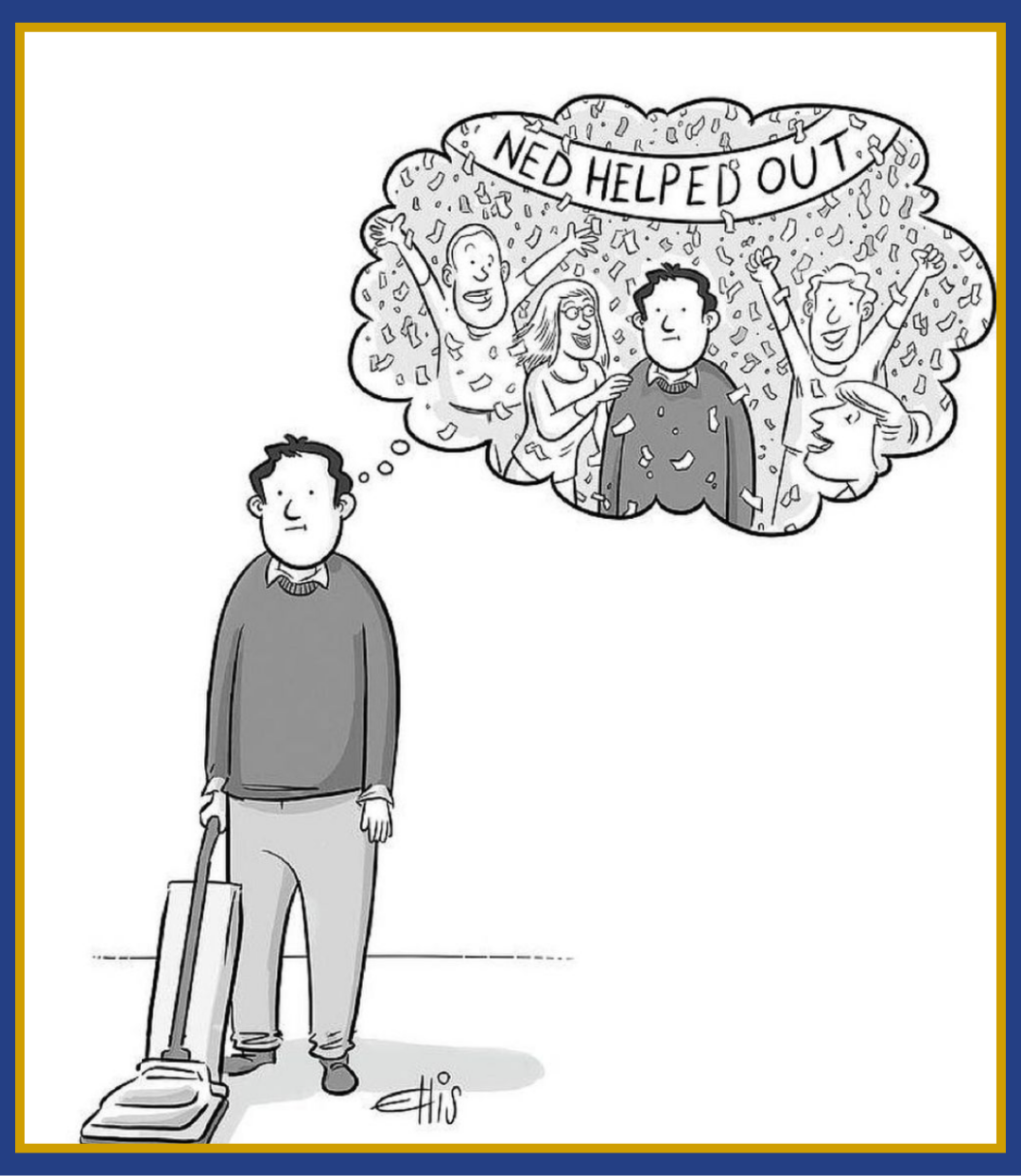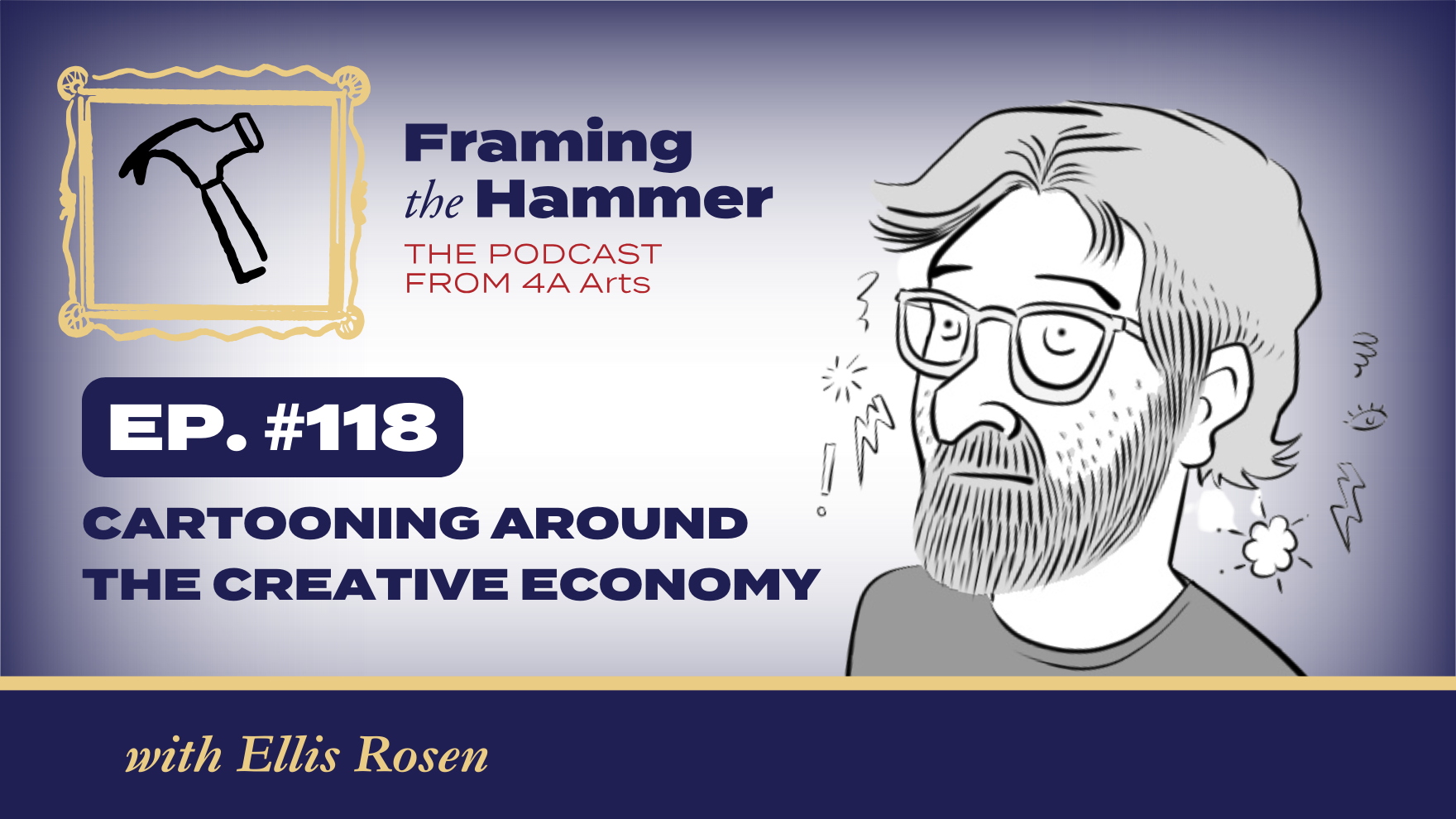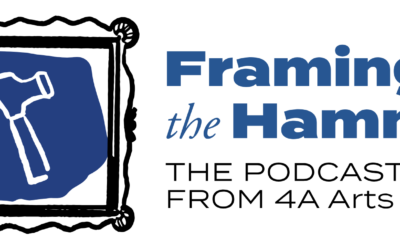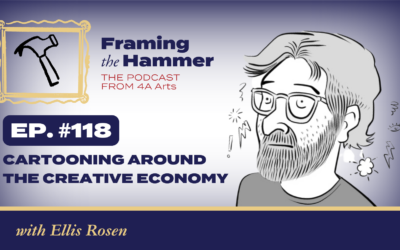Episode 18 of Framing the Hammer finds us in etymological and philosophical hilarity with cartoonist, Ellis Rosen. A cartoonist of many decades, Ellis has been featured in The New Yorker in addition to dozens of other publications, online, and in restaurants in Manhattan. We explore his career, cartooning’s place in the creative economy, and 4A Arts’s study of the wellbeing economy. Additionally, we explore several rabbit holes, like art’s purpose, the definition of “success,” and what really matters in life.
Rosen (and host Gavin Lodge, for that matter) radiates with glee while reminiscing about his childhood love for Gary Larsen’s The Far Side. Also inspirational in his early life was the cartoon, Groo the Wanderer, written and illustrated by Sergio Aragnoés, dialogued and edited by Mark Evanier, lettered by Stan Sakai, and colored by Tom Luth.

Rosen mentions friends and fellow cartoonist Sam Marlow, who encouraged Rosen’s pursuit of cartooning, as well as his friend Amy Kurzweil who has written a graphic memoir about her father’s use of AI to connect with his deceased father, Artificial – A Love Story.
We explore the notion of cartoons going viral, becoming memes, and what all of this means vis-á-vis cartoons. On the topic of viral cartoons, Rosen mentions Asher Perlman’s “Jukebox” cartoon, which has been replicated to mock bands and fans across the music industry. As for memes, Rosen mentions “Loss,” a comic book 4-panel scene by creator of webcomic Ctrl+Alt+Del, Tim Buckley, depicting his wife after her miscarriage, and the infamous internet meme it inspired.

Art is an expression of humanity, one way or another.
Rosen waxes poetically about many elements of his life as a cartoonist and his role as father, husband, son, and artist. In particular, he passionately shares his feelings that art serves to connect human beings and that cartooning is a relationship between the artist and the reader.
“The feeling you get when something connects, when something is right, when something original pops into your head, when something fun or funny makes you smile, makes you snicker…or in my writing, when I’m trying to connect these ideas together and this plot point comes into way and then all these other doors open up and suddenly you’re just in your head and hours pass and you’ve been sitting in the chair, but you’ve been in so many places. That to me is the goal of everything. That is what you’re chasing. That’s what’s fun. That’s what makes it worth doing.”
To read a transcript of the podcast interview, please click here.





